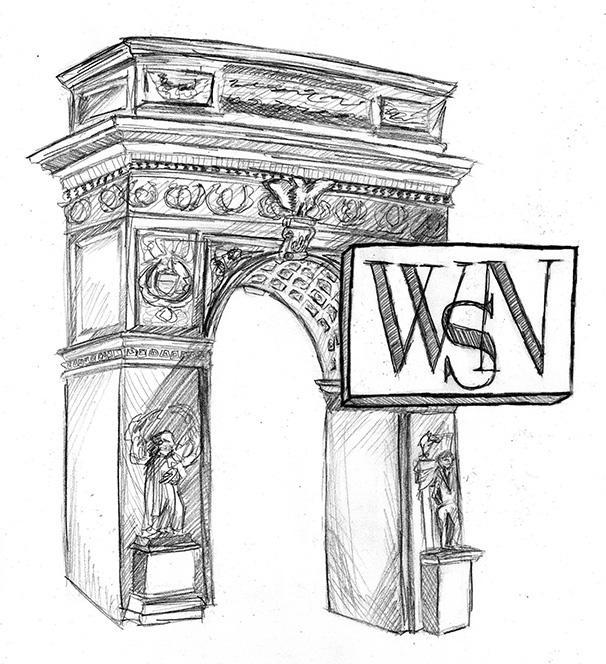New York City announced on Tuesday that homeless people staying at The Lucerne Hotel, located in the Upper West Side, will be removed. This move occurred after a weeks-long campaign mounted by a small contingent of Upper West Side residents who blamed their new neighbors for an increase in quality-of-life problems.
In response to the decision, attorney Randy Mastro stated “We appreciate that the city … will be taking concrete steps to address the chaos that reached a crisis point over the past several weeks when the city relocated hundreds of homeless individuals into the Lucerne Hotel, many of whom suffered from mental illness, addiction and other serious problems,” speaking on behalf of the West Side Community Organization, a group formed by neighborhood residents to get homeless residents out of the hotel.
Although Mayor Bill de Blasio denied caving to political pressure, it is undeniable that the well-funded political backlash that occurred following the decision to move these homeless people into the hotel was at least partially to blame for the sudden reversal. When the virus began rapidly spreading throughout the city’s shelter system, the homeless New Yorkers were originally transferred out of congregate shelters into empty hotel rooms in order to slow the spread of COVID-19 in overcrowded communal living spaces. The recent reversal of this decision not only jeopardizes the health of New York City, but places vulnerable people in an even more dire situation. It is clear that this recent decision is rooted in long-term hostility toward the homeless.
This open animosity against the homeless is deeply concerning. By deciding to evict the homeless and transfer them back to crowded shelters during a pandemic, New York City is capitulating to Upper West Side not-in-my-backyard-ism — a phenomenon where residents oppose a development considered undesirable in their neighborhood based on assumptions about the groups that will live there. Upper West Siders for Safer Streets, the private Facebook group created one day after the homeless men moved to the Lucerne, shows shocking examples of anti-homeless hostility: residents accused the men of urinating on the street and selling drugs in the open, while others fantasized about an armed uprising against the homeless, counseled each other to use wasp spray and dog feces to make the homeless feel unwanted and referred to them as “trash,” “scum” and “thugs.” In one incident, a noose was found outside the Lucerne Hotel, a clear message of intimidation aimed at the homeless residents.
Experiencing homelessness or housing insecurity at any time is difficult, but in the midst of a pandemic, survival is even more fraught. One analysis found that between April 12 to June 14, the number of homeless shelters with one or more confirmed cases of coronavirus grew 60%. The COVID-19 mortality rate among the homeless is 67% higher than the overall population, with 1400 reported infections and 104 deaths.
In these trying times, it is clear that those in power across the country must do all that they can to protect its most vulnerable citizens. However, the de Blasio administration has recklessly decided to deprioritize pandemic emergency relief out of political pressure. This is not the time to roll back protections. The United States remains in a state of emergency. Outside New York, new COVID-19 cases emerge across states that were the first to end their stay-at-home ordinances and reopened prematurely. While the city hasn’t experienced a second wave of infection yet, as schools and indoor dining reopen and residents exhibit reckless behavior in public spaces, a second wave is not unlikely.
De Blasio’s original decision to relocate homeless people from shelters to hotel rooms played a part in the city’s current success in curbing the amount of coronavirus cases by allowing more populations to social distance. Reversing this decision too early could lead to an uptick in COVID-19 cases.
Erin Drinkwater, an official at the Department of Homeless Services, warned about the possibility of a resurgence of coronavirus in the fall, stating, “It would be a terribly unfortunate circumstance to rush and move everyone back into congregate locations because of the current city infection rate, only to have a second wave come and hit us in the fall and have to relocate 10,000 clients back to commercial hotels to protect them.”
The de Blasio administration’s eviction of the homeless men from the Lucerne not only jeopardizes the health of one of the most vulnerable populations, but the health of the city as a whole. There are no justifications for the city to upend the lives of homeless people in such a callous manner. By caving to local residents’ threats to sue, the de Blasio administration suggests that in the city, groups who can afford to hire lawyers to threaten governing officials will continue to get their way while the lives of vulnerable populations who don’t have the resources to hire lawyers and threaten the mayor will be disregarded and endangered.
A version of this article appeared in the Monday, Sept. 14, 2020 e-print edition. Email the Editorial Board at [email protected].


























































































































































